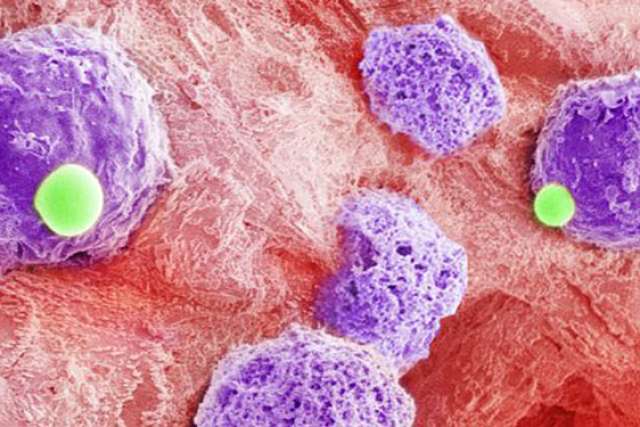Two scientists affiliated with UCLA’s Jonsson Comprehensive Cancer Center and the Eli and Edythe Broad Center of Regenerative Medicine and Stem Cell Research at UCLA have received prestigious awards from the National Institutes of Health (NIH) recognizing their leading-edge, innovative research.
Researchers Utpal Banerjee, the Irving and Jean Stone Professor and chairman of the Molecular, Cell and Developmental Biology Department and Heather Christofk, an assistant professor of molecular and medical pharmacology, received the NIH Pioneer Award and New Innovator Award, respectively. Banerjee was awarded $2.5 million over five years, Christofk will receive $1.5 million over five years.
Banerjee was one of 13 researchers nationwide, and one of five in California, to receive the Pioneer Award, designed to support “individual scientists of exceptional creativity who propose pioneering—and possibly transforming approaches—to major challenges in biomedical and behavioral research,” NIH officials said.
Christofk was among 49 scientists nationwide, and one of 18 in California, to receive the New Innovator Award, designed to stimulate highly innovative research and support promising new investigators. The award “supports exceptionally creative new investigators who propose highly innovative projects that have the potential for unusually high impact,” NIH officials said.
The awards to the UCLA scientists were part of $143.8 million in awards distributed Sept. 21 to challenge the status quo with innovative ideas that have the potential to propel fields forward and speed the translation of research into improved health for the American public.
“The NIH Director’s Award programs reinvigorate the biomedical work force by providing unique opportunities to conduct research that is neither incremental nor conventional,” said Dr. James M. Anderson, director of the NIH Division of Program Coordination, Planning and Strategic Initiatives, who guides the research program. “The awards are intended to catalyze giant leaps forward for any area of biomedical research, allowing investigators to go in entirely new directions.”
Banerjee’s research focuses on the maintenance of blood stem cells, specifically hematopoietic stem cells that are maintained within a microenvironment where signals from a niche are important for the maintenance of quiescence within a precursor population. Lack of such a niche-derived signal will cause loss of “stemness,” resulting in increased proliferation and eventual differentiation.
Christofk studies how metabolism is regulated in normal and cancer cells, and how this regulation may contribute to disease. She has discovered one mechanism important for the metabolic alterations in tumor cells, and is now exploring additional mechanisms of metabolic regulation. Christofk’s goal is to identify the proteins within cancer cells that are responsible for their altered glucose metabolism.





